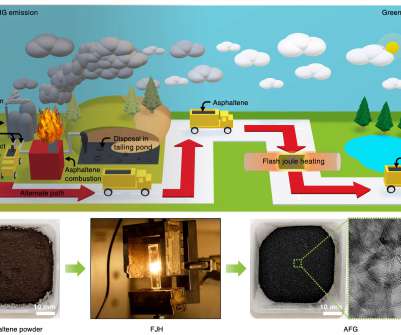U Kentucky CAER receives $1M for carbon fiber research
Green Car Congress
JULY 2, 2017
Department of Energy (DOE) grant to continue their research in developing low-cost, high-strength carbon fiber. The funding was part of DOE’s strategy to invest in discovery and development of novel, low-cost materials necessary for hydrogen storage and for fuel cells onboard light-duty vehicles.




























Let's personalize your content